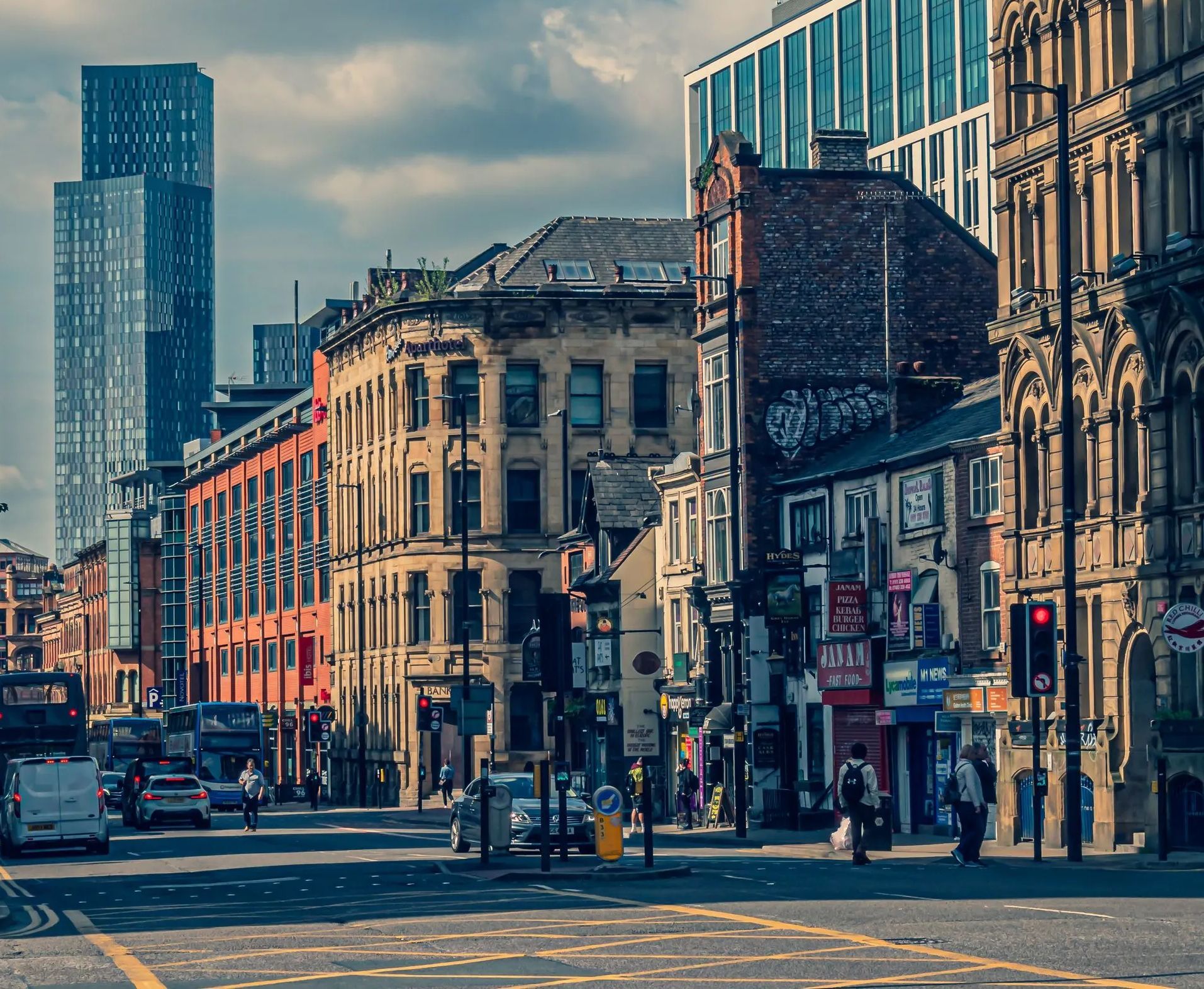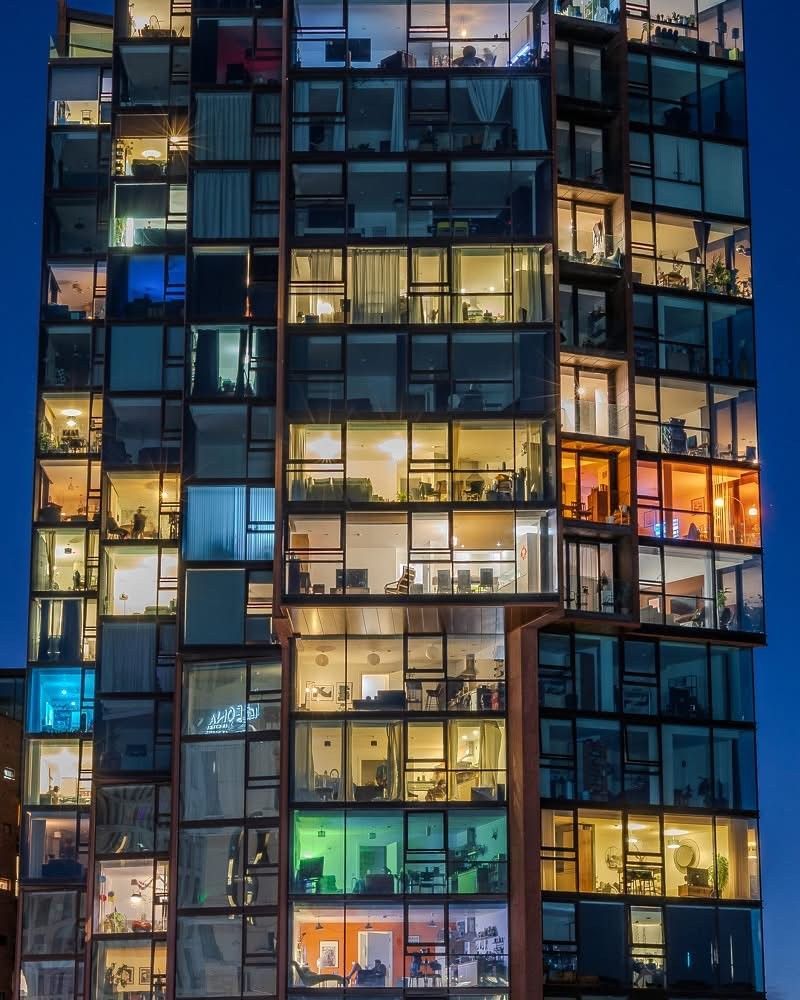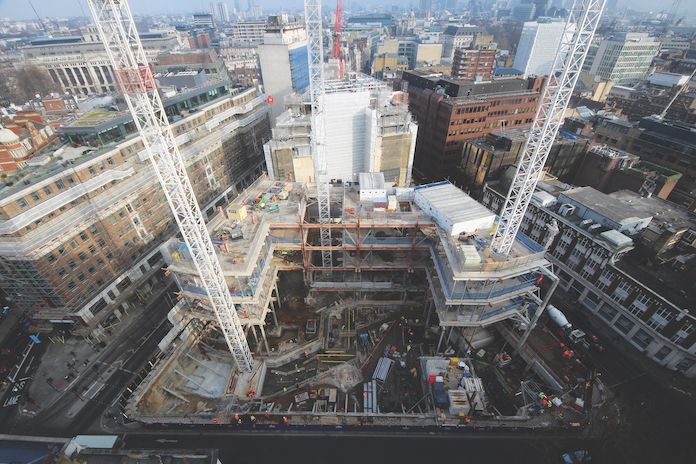Is Manchester selling its soul?
Charter Street Ragged School and Working Girls Home was built in 1847 to improve the lives of the poor in Angel Meadow, an area of notorious deprivation at the time of Manchester’s rapid industrialisation.

Situated under a dark railway bridge, it represents the old Manchester. Currently closed and unloved, this building stands dwarfed by the monumental Co-Op building and several soaring towers under construction. The euphemistically named Meadowside development promises 750 homes plus commercial spaces, in a convenient location just north of the city centre. But is Manchester at risk of losing its rich, distinctive heritage due to this rapid construction boom, largely fuelled by overseas investors? Is it selling its soul?
What is driving the construction boom?
The population in the city centre has rocketed from about 600 in the 1990s to 60,000 today. It is projected to continue to rise to 100,000. The city has experienced a growth miracle. Just like in the industrial revolution of the 19th century, people are moving to Manchester for jobs. Though not in mills or factories, this time around people are likely to be taking up jobs in the booming tech or construction sectors. The increase in jobs across the UK as a whole rose by 21% in the first 2 decades of the 21st century but in Manchester, they increased by 49%. That means there is a massive need for new homes and commercial spaces across the city centre.
Old and new
Decades of decline have left many of Manchester’s old buildings in a state of disrepair yet it is this neglect that has saved them from the developer’s wrecking ball. Until now. Even buildings in so-called conservation areas are being threatened with demolition, such as Grade 2 listed Reedham House in King Street West. A campaign has been launched to try to save it. The much loved, historic pub Sir Ralph Abercromby in Bootle Street was also threatened with demolition until a public campaign forced the developer to rethink their plans. Ironically, it is now being restored by the same developer and will be an asset to the new occupants of the site, not a liability. Construction is a complex operation and firms such as Veritas Surveying Manchester, who ‘make the complex simple’ are specialists in Quantity Surveying and Construction Dispute Claims.
Manchester’s unique character
The Director of SAVE Britain’s Heritage, Henrietta Billings stated: ‘This lack of oversight for how tall buildings and demolitions are managed or understood cumulatively across the city poses a major threat to one of the key ingredients of Manchester’s successes-its unique and vibrant character told through its buildings and rich history.’
Manchester is changing fast and the danger is that growth will cause the destruction of old buildings which are considered ‘in the way’ of new development. Since 2018, 27 towers have been built and 20 more are currently under construction in the city, with 51 in the planning stages. Yet, some may argue that these new homes will be out of reach to ordinary people, and are being built, not to benefit society, but simply to profit shareholders.
Sustainable growth
Undeniably some buildings have been lost but Manchester City Council have presided over the regeneration of many historic buildings, for example in Ancoats, the Northern Quarter and in NOMA. Manchester City Council stated that these are ‘areas where the focus has been almost entirely on refurbishing our heritage buildings, while delivering massive change and tangible outcomes- new jobs and new homes.’ Victorian red brick buildings are synonymous with Manchester and the north west, yet there are stunning examples of mid-20th century Modernist architecture across the city, and these are ripe for sustainable refurbishment and new use. Charter Street Ragged School would make a fantastic boutique hotel, just minutes walk from Victoria Station. So recycle, reduce, re-use.
Balancing growth and heritage will enable Manchester to be a distinctive city of the future, incorporating both it’s rich history and essential, new development.




